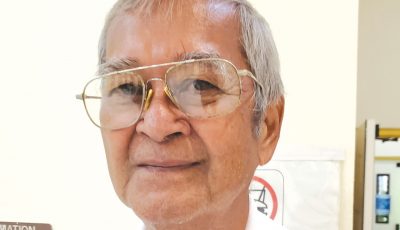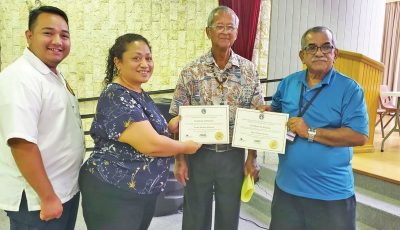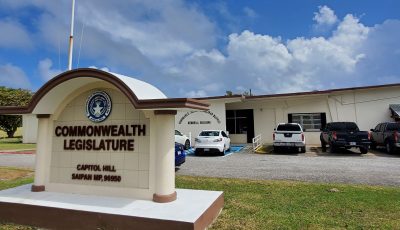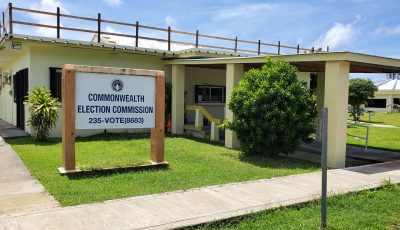CEC encourages Precinct 3 voters to vote
Democratic Party chair says they were not informed about manual counting
Only 99 individuals cast their votes yesterday on the third day of the seven-day early voting for the special election for a Precinct 3 seat in the House of the Representatives. This brings to 365 the number of early voters thus far.
That prompted Commonwealth Election Commission administrative officer Kayla Igitol to urge all voters from Precinct 3 to exercise their right to vote.
“We’re open from 8:30am to 4pm every day until Friday,” Igitol said.
Describing it as a low turnout, the first day of early voting last Saturday drew in only 170 votes. Last Sunday had 96 voters.
As of last Jan. 28, there were 3,361 registered voters for Precinct 3. Precinct 3 A covers San Jose/Oleai, while Precinct 3B covers Garapan.
The voting venue for the early voting is at the Garapan Community Development Center, which is located adjacent to the Carolinian Affairs Office, behind the basketball court.
Saipan Tribune learned that a female voter had a minor injury when she tripped near the entrance of the center last Saturday. She refused medical treatment.
Candidates Donald Cabrera Barcinas of the Democratic Party, Marco Taisakan Peter of the GOP, and independent David Castro Sablan put up tents in the vicinity of the polling venue.
Saipan Tribune did not see any tent from the other independent candidate, Mariano DLG Fajardo.
Barcinas, a former representative, believes he has a good chance of winning the election. He said yesterday he has received a lot of positive reaction and feedback from his supporters.
Meanwhile, Northern Mariana Islands Democratic Party chair Nola Kileleman Hix said they were surprised with CEC’s disclosure that the results of the March 23 special election will be manually counted.
In her letter last week to CEC executive director Julita Villagomez, Hix said that they delivered a letter to CEC last March 6 expressing their concerns about the procedures for the special election.
Hix said they read in the Saipan Tribune the following day, March 7, that quoted Villagomez as saying that no tabulation machine will be used during the special election because the votes will be manually counted.
“This, as the saying goes, was news to us,” said the Democratic Party chairwoman.
She said the commission made no attempt to communicate or consult with their party before making that decision.
“Neither are we aware of any meeting of the commission being noticed or held at which such a decision was on the agenda,” she said.
Hix said the election law requires that CEC “establish an accounting and tabulation committee composed of not less than five members.”
She said they have not submitted names of prospective tabulators for the special election because CEC has not indicated a need for tabulators, and that their understanding and expectation was that the ballots would be tabulated by machine.
Hix said the regulation provides that under the circumstances the primary method cannot be used and that the alternate method must be used, then all ballots in the Commonwealth shall be tabulated and counted by hand.
Accordingly, Hix said, the regulations require that ballots be machine-tabulated unless “the commission decides…that the alternative method must be used.”
“To the best of our knowledge, the commission has not made any such decision,” she said, adding that the “must be used” language means the CEC must articulate a very substantial reason why manual counting “must be used.”
Hix said since CEC began using tabulating machines, it has been constituting itself as the tabulating committee.
While of questionable legality, Hix said this practice has not been challenged in the several elections since it began.
She said this practice would be less problematic if CNMI voters had a full nine-member election commission.
“Unfortunately, this is not the case, and the problem has been exacerbated by the governor’s constitutionally infirm removal of one of the commissioners between last year’s general election and the present,” Hix said.



























